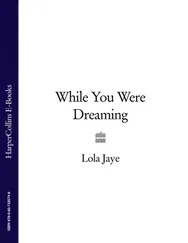你不是人 nǐ bú shì rén ( nee boo shih ren)
You’re worthless; you’re inhuman. Literally, “You are not a person.”
你不是东西 nǐ bú shì dōngxi ( nee boo shih dohng she)
You’re worthless; you’re less than human. Literally, “You’re not a thing” or “You’re not anything.”
不要脸 bùyàoliǎn ( boo yaow lyinn)
Shameless, without pride. Literally “doesn’t want face.” Face is a central concept in Chinese culture and entire volumes have been written in attempts to fully explain its nuances, but suffice to say that losing face is bad, giving face is good, and not wanting face is unspeakably shameful-thus saying that someone is bùyàoliǎnis far more insulting than the English word “shameless” and conveys a complex mix of being somehow subhuman, pathetic, and so lacking in self-respect that you would willingly do things that no one else would be caught dead doing. Also used by women to mean “disgusting” and sometimes with 臭 chòu ( cho , rhymes with “show”), which means “stinking,” in front to amplify it to 臭不要脸 chòu bùyào liǎn, or “absolutely disgusting.” Another common way to amplify the expression is to say 死不要脸 sǐ bù yào liǎn (sih boo yow lyinn), literally, “You don’t want face even when you die.”
去死 qù sǐ ( chee sih)
Go die.
走狗 zǒugǒu ( dzoe go- both syllables rhyme with “oh”)
Lackey, sycophant. Literally “running dog.” Said of a servile person with no morals who sucks up to more powerful people.
狗腿子 gǒutuǐzi ( go tway dzz) / 狗腿 gǒutuǐ ( go tway)
A variant of zǒugǒu (above). Literally “dog legs.” You may have heard of the term “capitalist running dog” or “imperialist running dog.” Mao Zedong used “dog legs” to refer to countries that were friendly with the United States.
滚 gǔn ( gwen) or 滚开 gǔnkāi ( gwen kigh) or 滚蛋 gǔndàn ( gwen dun)
Go away; get lost.
老不死的 lǎo bù sǐ de ( laow boo sih duh)
A rude term for an old person. Literally “old and not dead.”
老东西 lǎo dōngxi ( laow dohng she)
Old thing. A rude term for an old person.
老模砢磣眼 lǎo mó kē chěn yǎn (laow mwuh kuh chen yen)
Literally “old wrinkle eyes.” An insulting term for someone old and ugly. Used in Beijing.
垃圾 lājī ( lah gee)
Literally “trash” but can be derogatorily said of people as well. In Taiwan pronounced lè se ( luh suh).
畜生 chùshēng ( choo shung)
Animal, inhuman. Literally “born of an animal.” An extremely strong insult.
Slut and whore
In addition to the terms below, chapter 7, “Behaving Badly,” includes numerous words for “prostitute” that can also be used as strong insults.
骚货 sāohuò ( saow hwuh- sāo rhymes with “cow”)
Slut (but can also be said of a man). Literally “lewd thing.”
贱货 jiànhuò ( gin hwuh)
Slut (but can also be said of a man). Literally “cheap thing.”
婊子 biǎozi ( byow dz)
Can literally mean “whore” but also used as a strong insult for a woman, equivalent to “bitch” or “whore.” Often strengthened to 臭婊子 chòu biǎozi ( choe byow dz ), literally “stinking whore.”
狐狸精 húlijīng ( hoo lee jing)
Vixen, tart, slut. A woman who seduces other people’s husbands or boyfriends. Literally “fox-spirit,” referring to a creature from Chinese mythology. Slightly milder than the other terms for “slut.”
风骚 fēngsāo ( fung sow , the latter rhymes with “cow”)
Slutty. Literally “sexy and horny.”
公共汽车 gōnggòngqìchē ( gohng gohng chee chuh -the first two syllables sound like “gong” but with a long o , or oh, sound in the middle)
Slut, a woman who sleeps around. Literally “public bus,” as in “everyone has had a ride.” Similar to the English expression “the neighborhood bicycle.”
荡妇 dàngfù ( dahng foo)
Slut. Literally “lustful woman.”
残花败柳 cán huā bài liǔ ( tsahn hwah buy lew -liǔ rhymes with “pew”)
An insult meaning “old whore.” Literally “broken flower, lost willow.” Used mostly in northern China.
CHAPTER THREE. Swearing and Profanity
In English, we have plenty of ways to curse, but for the most part we tend to rely on a small and rather unvaried stable of fallback words. Similarly, the Chinese language allows you to spin an infinite number of creative, colorful curses, but you’re much more likely to stick with a basic like “fuck you.”
As in English, most Chinese swearing centers on fucking and its related accoutrements (the pussy and penis). And lots of insults involve stupidity or illegitimate birth or prostitution-nearly direct equivalents to “stupid cunt,” “fucking bastard,” “dirty whore,” “what a dick,” etc.
There are, however, a few major differences between the two languages. For one thing, China is officially an atheist country, so there is no real equivalent to Christian (or Muslim) blasphemy-nothing mirroring “Holy God!” or “Jesus Christ!” or “Damn you to hell!” Several terms in this chapter are translated as “damn” but really to indicate in English how strong-or in this context not strong-of an obscenity the word is. The concepts of heaven, hell, and devils, however, do exist in China, stemming from Buddhist and Taoist traditions, and thus you can call someone a devil, tell someone to go to hell, and launch a few other insults along those lines, but they are not very common and are considered old-fashioned and mild (the few examples of such insults worth mentioning appear in the previous chapter). Perhaps the closest thing to religious blasphemy in Chinese is the cursing of one’s ancestors, which is a serious insult as Chinese culture places a great deal of importance on blood ties, and ancestor worship is still practiced in some of the more traditional parts of the country.
Another way in which Chinese differs from English is that words relating to homosexuality (see chapter 6) are not particularly used as insults. This, again, may have something to do with the lack of religious dogma in China. While homosexuality is not exactly accepted in Chinese society, being gay does not carry the stigma of inherent moral “wrongness” that it often bears in Christian and Muslim societies. (Homosexuality can be considered bad in China for plenty of other reasons, but they mostly have to do with the importance that society places on having children.) Thus there is nothing in the Chinese vocabulary like “cock-sucker,” “faggot,” “bugger off,” “that’s so gay,” or “that sucks.”
One final mainstay of English-language swearing conspicuously absent from Chinese is “shit.” In a country that until recently was predominantly agricultural (meaning that manure was an important resource), where people talk openly at the dinner table about diarrhea, and where babies toddle about with their naked butts exposed in “split pants” (pants open at the back so that Junior can squat wherever he wants and take an impromptu dump on the street), it just isn’t very dirty to mention excrement or urine.
This is not to imply, however, that shit is entirely neutral in Chinese. Any mention of shit is vulgar, and thus certainly not fit for, say, the classroom or the office; it just isn’t used as an actual swear word like it is in English. You might use it when you’re purposely being gross, such as while joking around with family or good friends. But in those cases talking about shit would be just crude enough to be funny but not outright dirty. And as with any vulgar word, “shit” can also be used in an insulting way. One might say, for example, “That movie sucked so hard it made me want to shit,” or “The team played like shit.” For that reason, this chapter includes a few pejorative words and phrases involving shit, but you’d use them more to be bawdy than to actually swear. In fact, the very idea of using “shit” pejoratively is probably a Western import that was popularized through the subtitling of Western movies in Hong Kong.
Читать дальше










